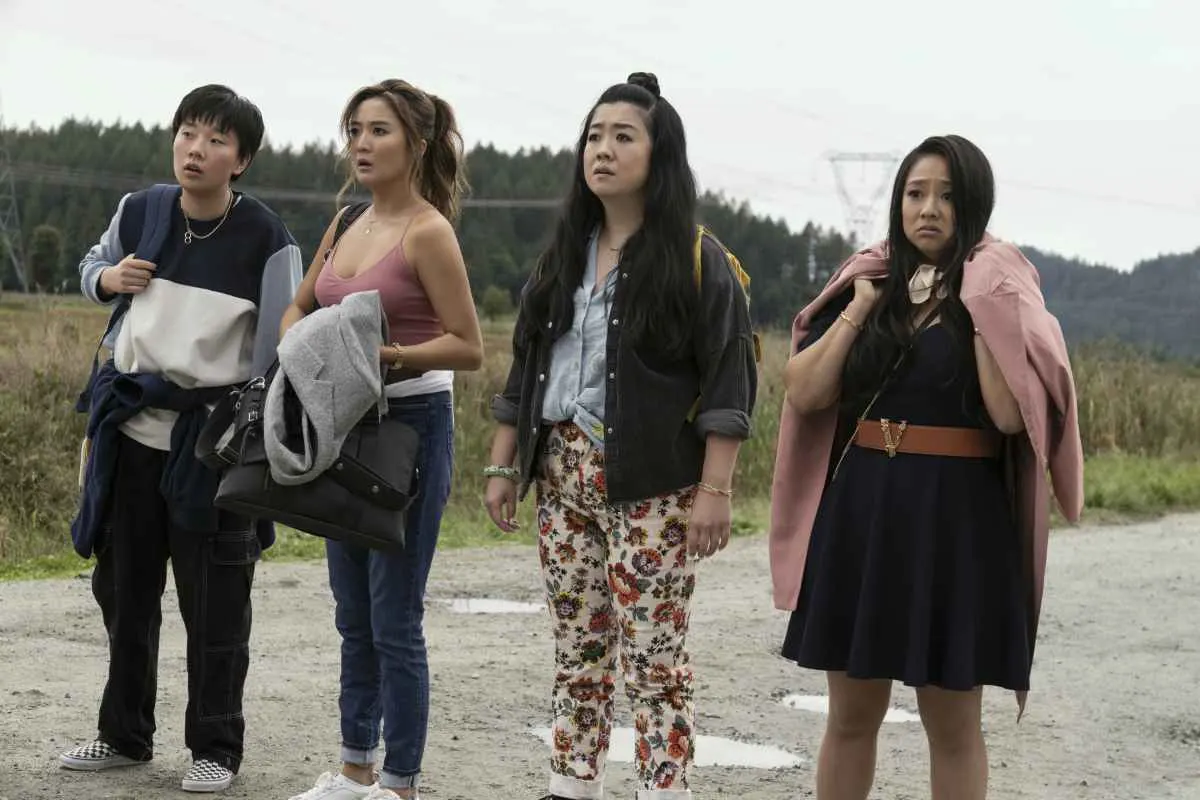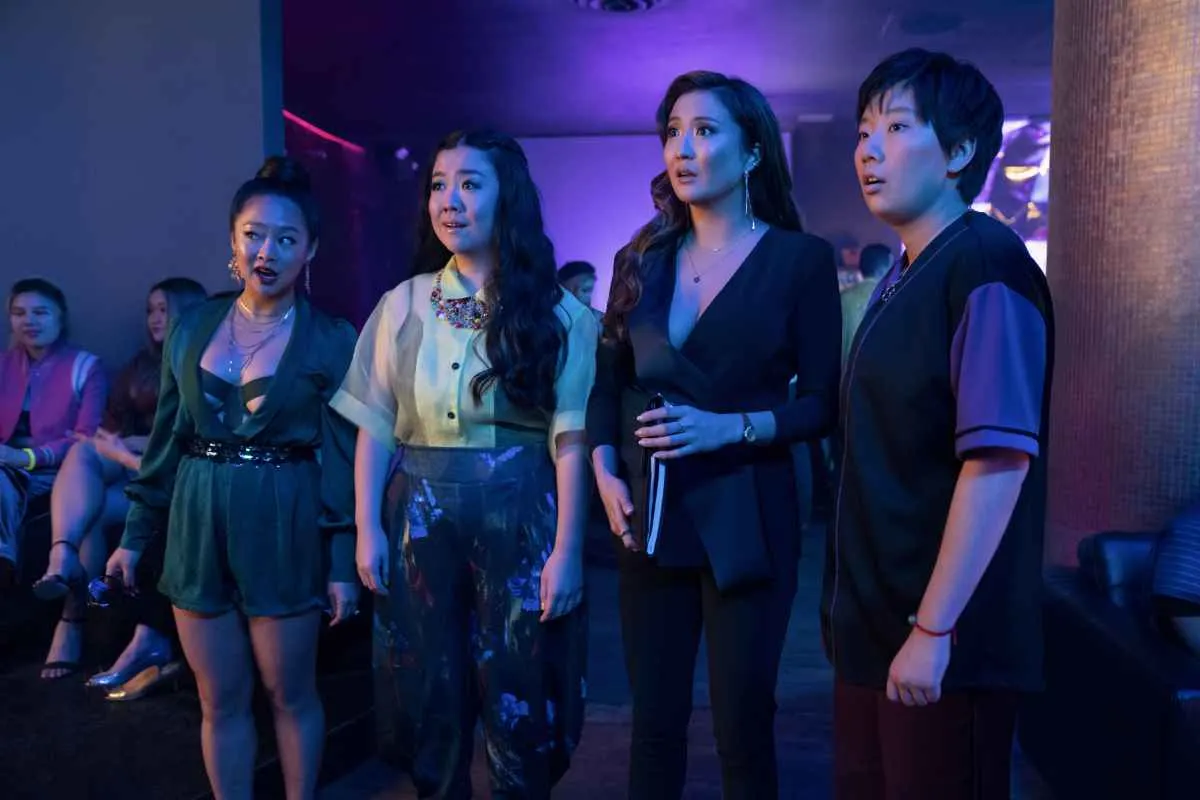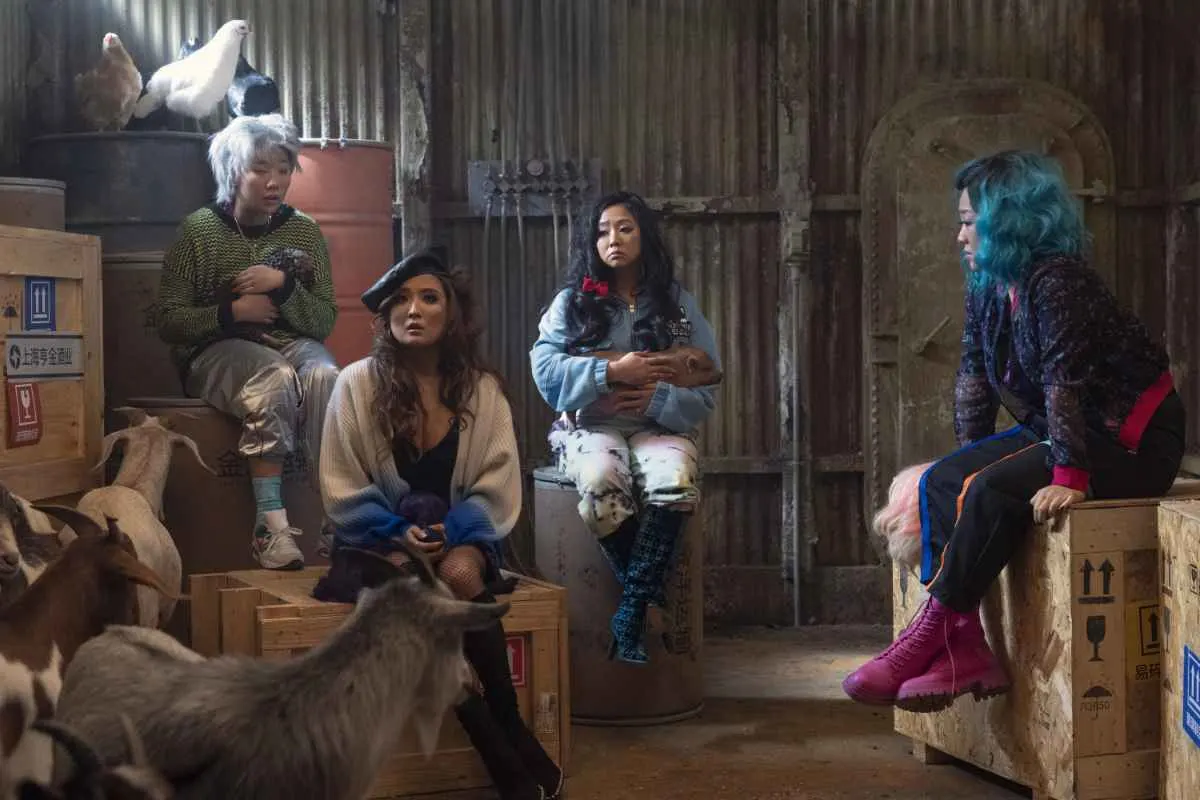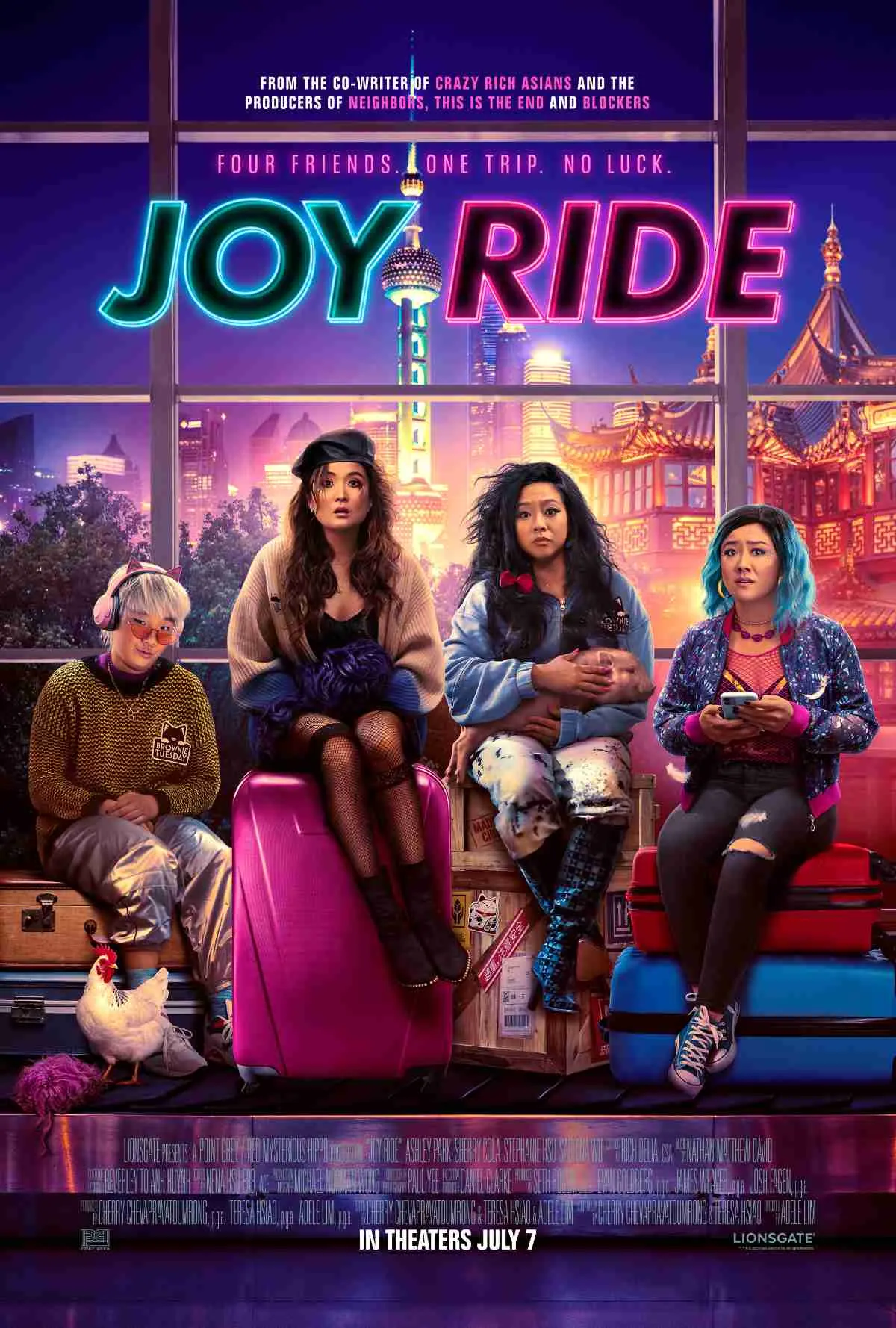Joy Ride, Adele Lim‘s extended road trip through China, is an enticing meditation on the complexity of identity within the immigrant experience that is unfortunately saddled with banal modern comedic tropes that undercut rather than enhance the journey.
The phrase ‘immigrant experience’ itself seems overused at this point, a short-hand attempt to quantify a reality that is as differentiated for each of it subjects as it is similar, the infinite vagaries of which are… life. Joy Ride takes those multitudinous options and flattens them into the studied, understood structure of modern R-rated comedy with no room for experimentation or novelty.

Given the opportunity to stare the cultural roadblocks of racism and stereotype in the face and mock them, Lim and company frequently turn aside to nestle into the comfort of threadbare ribaldry and archetype that was fresh 15 years ago but is now in dire need of updating.
The chance for update is there in the life of Ashley Park‘s Audrey Sullivan. Adopted from China by an American family as an infant, Audrey has assimilated fully, growing into a hard-charging, goal-oriented lawyer with little life outside professional achievement, and no interest in her birth country or trying to meet her birth mother.

Her only attachment to China at all is her childhood friend Lola (Sherry Cola), a free-spirited artist and second-generation emigrant who ignores her parents’ pleas to assume some sort of responsibility for her life, focusing instead on her various sex-themed creations thanks to the largesse of Audrey.
Seeing Audrey’s refusal in any way to connect with China or her past as a personal block that will long-term harm her, Lola has continually pushed Audrey to find her mother and invites herself along as a translator when Audrey is assigned to go to Beijing to close a major deal with a Chinese financier (Ronny Chieng).

Audrey’s painfully-awkward boss (Alexander Hodge) and his attempts to talk himself into and out of accidental racial profiling are both obvious and hilarious and speak to the depth of satire Lim and co-writers Cherry Chevapravatdumrong and Teresa Hsiao are able to mine. But there seems to be as much desire to do it as Audrey has in learning another language.
Audrey and Lola’s pairing quickly becomes a foursome when Lola invites the introverted, excitable and newly minted BTS fan Deadeye (Sabrina Wu) to join them while Audrey reconnects with her college roommate Kat (Everything Everywhere All At Once‘s Stephanie Hsu), now a successful actress on Chinese television. As the group expands the destination becomes gradually less important than the journey, but the journey is entirely down roads that have been travelled before.

When Chao outs himself as a ‘strict traditionalist’ and firm believer in meeting the family of his business partners in order decide if he can trust them, Audrey quickly finds herself creating a relationship she has never had with a woman she has never met and promising to introduce the two of them. Finally able to make Audrey seek out her old orphanage, Lola moves on to the next most important thing she feels her best friend is lacking – more sex.
Satire is mostly shunted to one side to service episodic hijinks with the quartet easily falling into patterns that have been replicated many times now (Girls Trip, various Hangover films, etc.). Audrey is the straight man, focused on goals and not on live; Lola is the arrested development best friend overly focused on sex and lacking any sort of filter; Kat cool and collected star who resents Lola and is gradually cracking under the strain of the front she puts on. There is some re-arranging of pieces, but there’s nothing that hasn’t been done and recently.

On the surface it suggests rich lives focused on more than just ethnicity and background, that they are individuals with the same universal desires as everyone else, and in at least some cases no fear in chasing after them. And if that was fully integrated into the group as one part of a unique personality it would probably work.
Instead they are single-note characteristics that become all-encompassing and all-defining. It turns the four of them into robots capable of one instruction and one response that serve only to set up gags and drive plot; nothing about their various shenanigans suggests any sort of interiority.

It’s only when Audrey does finally reach the orphanage and finds out how little she really knows about where she came from that Joy Ride emerges from its stupor and becomes funny again. And it is frequently very funny even when it’s over-focused on chasing outrage.
The problem with outrage is that once the shock of seeing the Emperor has no clothes wears off there may not actually be anything funny about the experience, and no way to hide any shortcomings.

Joy Ride does eventually reach a grand destination but the trip to get there is uneven.
JOY RIDE REVIEW SCORE: 6.5 OUT OF 10
Lionsgate will release the film in theaters on July 7, 2023. Joy Ride is rated R for strong and crude sexual content, language throughout, drug content and brief graphic nudity.


Joshua Starnes has been writing about film and the entertainment industry since 2004 and served as the President of the Houston Film Critics Society from 2012 to 2019. In 2015, he became a co-owner/publisher of Red 5 Comics and, in 2018, wrote the series “Kulipari: Dreamwalker” for Netflix. In between, he continues his lifelong quest to find THE perfect tomato soup and grilled cheese sandwich combination.